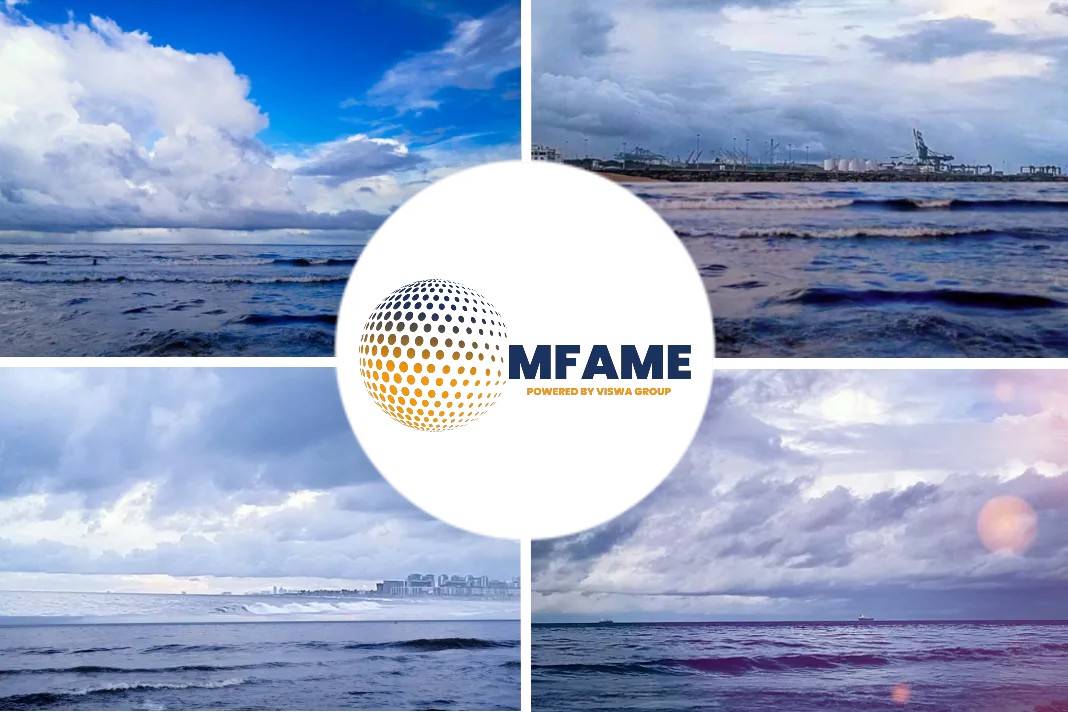- Blockchain technology is being trialled to counter the alarming boxship fires started by misdeclared goods.
- A consortium established to explore the use of blockchain in tackling the risks and challenges associated with the declaration and handling of dangerous goods.
- CINS quotes nearly 25% of all serious incidents onboard containerships were attributable to misdeclared cargo.
- The MBL consortium to build and test a prototype to assess the potential for DLT to address the challenges faced by stakeholders throughout the supply chain.
- Tracking and monitoring contents of seafaring containers is a complex task that demands stakeholders cooperation and data interoperability and information sharing.
Maritime Blockchain Labs (MBL) has created a consortium, to explore the use of blockchain in order to counter the dangers and challenges regarding the declaration and handling of dangerous goods, reports Splash247.
Blockchain technology
Blockchain technology is being trialled to try and counter the alarming string of boxship fires started by misdeclared goods.
Maritime Blockchain Labs (MBL), founded by blockchain technology and governance experts BLOC and the Lloyd’s Register Foundation (LRF), announced the establishment of a consortium to explore the use of blockchain in tackling the significant risks and challenges associated with the declaration and handling of dangerous goods.
CINS attributes incidents to misdeclared cargo
According to the Cargo Incident Notification System (CINS), nearly 25% of all serious incidents onboard containerships were attributable to misdeclared cargo.
In light of this, the consortium will explore the use of digital tools for
- traceability of dangerous goods cargo, and immutable attestations
- digital audit trails for due diligence with a view to generating more transparency and
- accountability in tracking dangerous goods; ultimately, reducing incidents.
Prototype to be tested
The MBL consortium will build and test a prototype to assess the potential for distributed ledger technology (DLT) to address the challenges faced by stakeholders throughout the supply chain.
Members of the consortium
Funded by LRF and conducted in partnership with Rainmaking, the consortium includes”
- Copenhagen Malmö Ports (CMP),
- Flexport,
- X-Press Feeders,
- SecureSystem,
- DSV,
- PSA,
- Port+,
- Agility and
- MTI.
It represents stakeholders throughout the value chain, from ports, to carriers, to technology and service providers. The project will run until September 2019.
What does the consortium do?
Deanna MacDonald, CEO and Founder of BLOC, commented that the global economy is a highly interconnected machine, and with container ships transporting more than 90% of non-bulk cargo worldwide, this machine only operates efficiently when the shipping and logistics components operate efficiently.
Continuous tracking and monitoring of the contents of seafaring containers is a supremely complex task that demands cooperation amongst stakeholders and a high level of data interoperability and information sharing.
Blockchain has a huge amount of potential when it comes to tackling this and stakeholders must be brought together from across the value chain to ensure that whatever solution is built works for everyone involved. This is what this consortium is here to do.
Dangerous cargo undeclared or misdeclared
While the exact breakdown of cargo contents varies by container, it’s well known that at any given time, between 5-10% of an average container ship’s cargo is declared as hazardous goods.
Approximately 12% of global container trade comprises dangerous goods. However, it’s nearly impossible to know how much dangerous cargo is undeclared, or misdeclared.
Did you subscribe to our daily newsletter?
It’s Free! Click here to Subscribe!
Source: Splash247
















